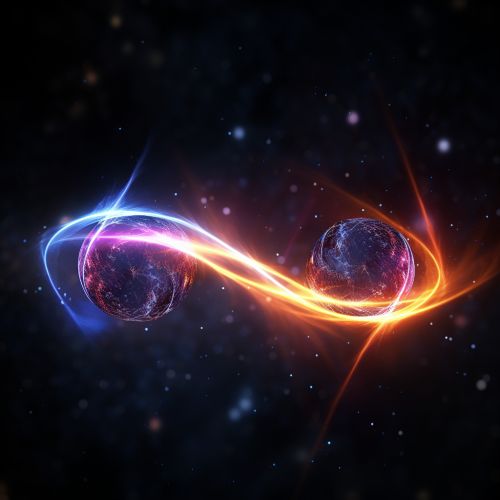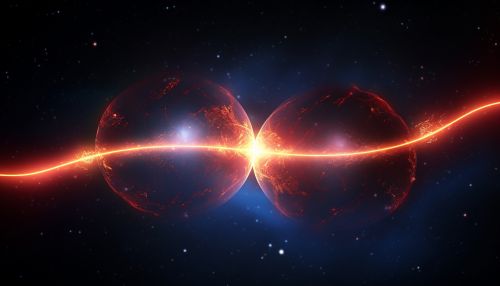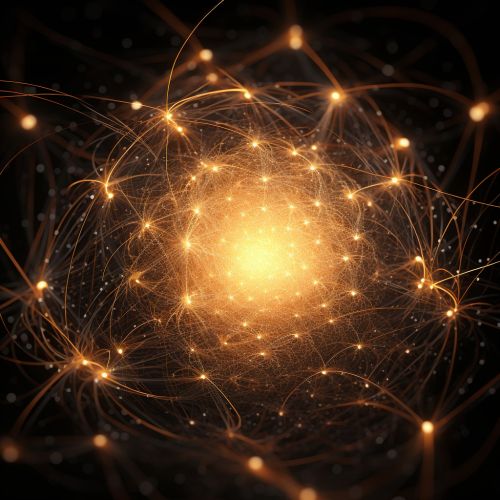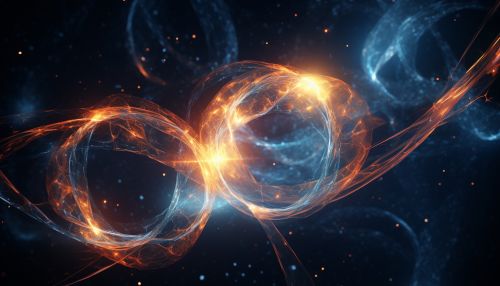The Physics of Quantum Mechanics in Quantum Entanglement
Introduction
Quantum mechanics, a fundamental theory in physics, describes nature at the smallest scales of energy levels of atoms and subatomic particles. It introduces principles that are drastically different from classical physics, particularly the phenomenon of quantum entanglement.
Quantum Mechanics
Quantum mechanics is a branch of physics that deals with phenomena on a very small scale, such as molecules, atoms, and subatomic particles like electrons, protons, and photons. It is a fundamental theory in physics which describes how these particles behave and interact with each other. The theory is known for its challenging concepts and mathematical structure, as it incorporates principles and results that are not seen in classical physics.


Principles of Quantum Mechanics
Quantum mechanics operates on several key principles that differentiate it from classical physics. These principles include wave-particle duality, the uncertainty principle, superposition, and quantum entanglement.
Wave-Particle Duality
The concept of wave-particle duality asserts that all particles exhibit both wave and particle properties. A central concept of quantum mechanics, this principle is a fundamental characteristic of the universe's smallest particles.
Uncertainty Principle
The uncertainty principle, formulated by Werner Heisenberg, is another fundamental concept in quantum mechanics. It states that the position and the velocity of an object cannot both be measured exactly, at the same time, even in theory.


Superposition
The principle of superposition claims that while we do not know what the state of any object is, it is actually in all possible states simultaneously, as long as we don't look to check. It is the measurement itself that causes the object to be limited to a single possibility.
Quantum Entanglement
Quantum entanglement is perhaps one of the most intriguing principles of quantum mechanics. It refers to a phenomenon where multiple particles become linked, and the state of one can instantly affect the others, regardless of how far apart they are.


Quantum Entanglement
Quantum entanglement is a physical phenomenon that occurs when a pair or group of particles interact in ways such that the quantum state of each particle cannot be described independently of the state of the others, even when the particles are separated by a large distance.
Entangled Particles
When particles become entangled, they lose their individuality and in many ways behave as a single entity. An entangled system is defined by the correlations between its parts, and these correlations make the system as a whole something that cannot be split into independent parts.


Non-locality
One of the most striking aspects of entanglement is its non-locality. Once entangled, particles can remain connected, even over large distances, and actions performed on one particle will affect the other particles instantly.
Quantum Entanglement and Information Transfer
Quantum entanglement has significant implications for information transfer. Theoretically, information could be transferred between entangled particles instantaneously, leading to the concept of quantum teleportation.


Conclusion
Quantum mechanics, and particularly quantum entanglement, remains one of the most fascinating subjects in modern physics. Its principles challenge our understanding of the world and could potentially revolutionize fields such as communication, computing, and encryption.
